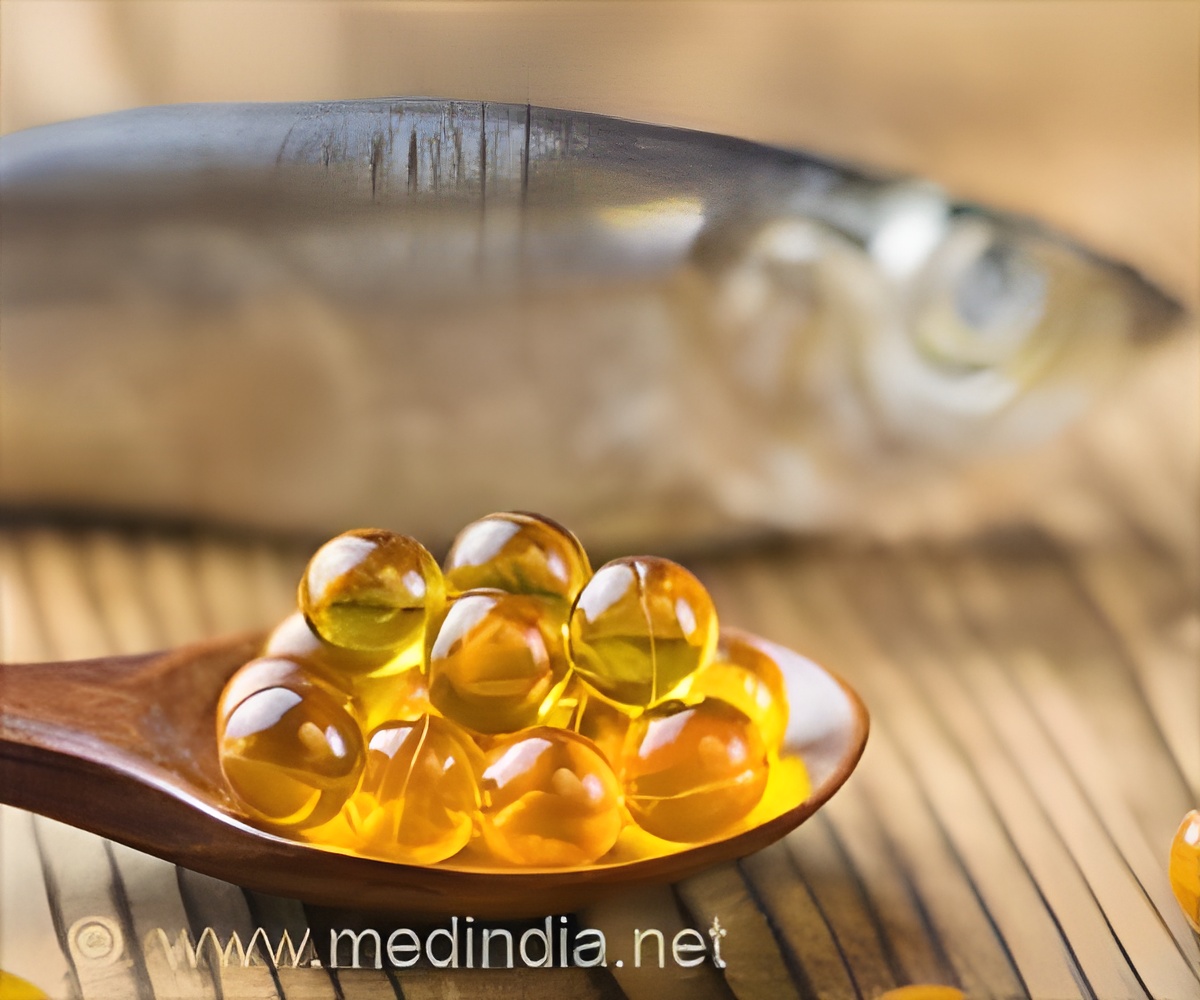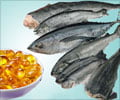Omega-3 fish oil supplements improve attention among kids with Attention Deficit Hyperactivity Disorder (ADHD), but only among those with low levels of omega-3 in their blood.

‘Omega 3 fish oil helped kids with ADHD to focus if they were deficient in the nutrient. But, it did not help and even had the opposite effect on kids who already had healthy or high levels of omega-3.
’
Read More..




The researchers say their results bring a personalized medicine approach to psychiatry by demonstrating that omega-3 only works for some children with ADHD. Previous research by the same group found that children with omega-3 deficiency are more likely to have more severe ADHD.Read More..
In a randomized controlled trial, 92 children with ADHD aged 6-18 were given high doses of the omega-3 fatty acid EPA (eicosapentaenoic acid) or a placebo for 12 weeks.
The researchers found that children with the lowest blood levels of EPA showed improvements in focussed attention and vigilance after taking the omega-3 supplements, but these improvements weren't seen in children with normal or high blood levels of EPA. In addition, for those children with high pre-existing blood-levels of EPA, omega-3 supplements had negative effects on impulsivity symptoms.
The researchers caution that parents should consult with medical professionals before opting to give their children omega-3 supplements. Omega-3 deficiency can be identified by the presence of dry and scaly skin, eczema, and dry eyes, and could be confirmed through a blood test like the one conducted in this study (though currently, the blood test is only available for research purposes).
Previous studies have found inconsistent findings of omega-3 supplementation on ADHD symptoms, with overall effect sizes being relatively small. Standard treatments offered to parents whose children have ADHD include stimulants such as methylphenidate. The effect size of improvement in attention and vigilance from methylphenidate is 0.22-0.42. In comparison, the effect sizes in the trial of omega-3 supplementation for those children with low blood levels of EPA were larger, at 0.89 for focused attention and 0.83 for vigilance.
Advertisement
Professor Carmine Pariante, the senior researcher from the Institute of Psychiatry, Psychology & Neuroscience at King's, said: 'The omega-3 supplements only worked in children that had lower levels of EPA in their blood as if the intervention was replenishing a lack of this important nutrient. For those children with omega-3 deficiency, fish oil supplements could be a preferable option to standard stimulant treatments. Our study sets an important precedent for other nutritional interventions, and we can start bringing the benefits of 'personalized psychiatry' to children with ADHD.'
Advertisement
Professor Kuan-Pin Su, the co-lead researcher from China Medical University in Taichung, Taiwan, said: 'High blood-levels of EPA without using supplements can be achieved through a good diet with plenty of fish, which is common in some Asian countries like Taiwan and Japan. It is possible that EPA deficiency is more common among children with ADHD in countries with less fish consumption, such as in North America and many countries in Europe, and that fish oil supplementation could, therefore, have more widespread benefits for treating the condition than in our study.'
Source-Eurekalert















